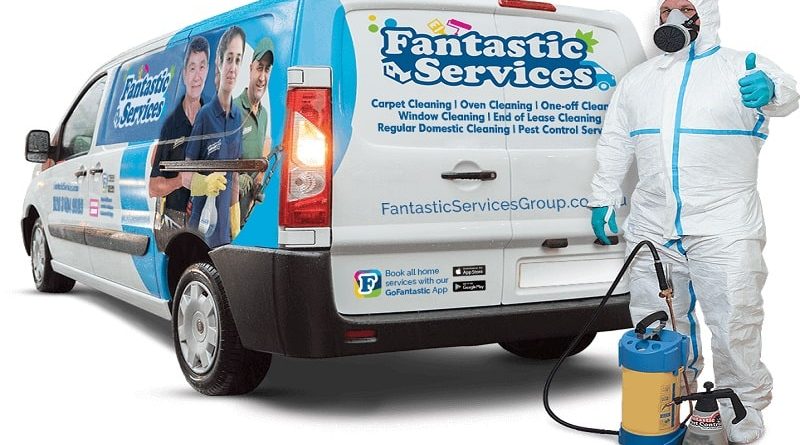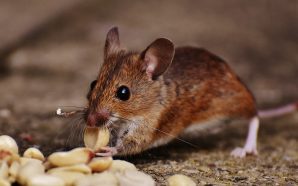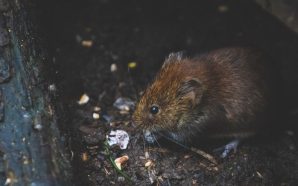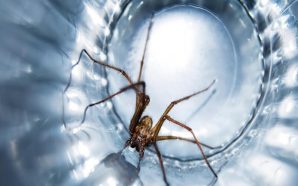Home is often where we feel most comfortable, but that comfort can quickly disappear when you have pests and critters looking for shelter in your property. They will scutter in the walls keeping you awake at night, gnaw at your food, and bites while you sleep. The good news is, there are many solutions to this problem, most of which are easy to do and very effective.
Pest Prevention
Generally speaking, you want to try and eliminate any possibility of a pest infestation before it has the chance to begin.
One of the easiest ways to prevent pests is making sure that they never have access to any reliable food sources. Place your food in secure plastic, or glass containers, making it harder for any pests to access them. Also, make sure that any food waste is disposed of correctly and sealed in covered rubbish bins and that it’s removed from your home regularly. If you own pets, don’t leave any food or water out overnight and seal any pet food bags or tins properly.
Fill any cracks in with caulk and the larger crevices with steel wool. This will stop them from entering your property. Steel wool is especially useful against rodents, as it creates a painful sensation in the mouth when it’s gnawed on. Secure the steel wool in place with caulk, just to make sure no especially tenacious rodents decide to move it.
Keeping The Creepy Crawlies At Bay
There are approximately 1.4 billion insects for every one person, so it’s no wonder they are some of the most common infestations to have. Luckily, there are multiple remedies for multiple insects.
Ants
Ants are a very common pest and where there is one, there are usually many. They leave a scented trail for other ants to follow, so eliminating this trail is a great way to stop their numbers from increasing. The scent can’t be washed away with water alone, so mix white vinegar with water in a spray bottle and scrub the area where you last saw any ants. This will stop any nesting ants from creating a more permanent home inside yours.
Mosquitos
Mosquitos are another common problem that homeowners face, especially in the Summer. Mesh covers on your windows and doors will make sure to keep them out. Burning rosemary and sage is effective at repelling the little bloodsuckers, especially if you’re doing gardening work.
Spiders
Spiders can be great pest controllers themselves and help keep mosquito and fruit fly populations at bay, but none of this matters if you are terrified at the sight of your eight-legged roommate.
One way to stop them from entering your house is to cut onions and place them into a bowl of water. Place the bowl near where spiders enter your house and it should stop them in their tracks. Maintain your humidity levels (around 40%) to keep them away from basements or garages. Just make sure to be vigilant with cobwebs and remove them regularly.
Bed bugs
Bed bugs can be nasty critters and their bites can be a major cause of annoyance to you and your family. It can often be difficult to tell if you have an infestation, but there are a few telltale signs. Bites are obviously the most noticeable, but they can often be confused for other insect bites. Bed bugs will often bite in clusters, or lines and they are red and itchy. Check your bedsheets for any blood, as you can crush them in your sleep. Keep an eye out for brown spots on your sheets or furniture too, as this can be bed bug faeces.
When facing an infestation, the best option is to get an exterminator. Bed bugs are tenacious and resist many forms of store-bought pesticides, meaning you won’t be able to deal with them by yourself. An exterminator can effectively remove them, however.
In the meantime, put any affected clothes or bedding in a hot wash (around 60C), or tumble-dry them on a high heat setting. Another solution is to put your bedding in a sealed bag and place it in the freezer. Remove the bedding after four days and you should be safe to sleep on them again.
Pesticides And Safe Use
If preventative measures and traditional remedies haven’t worked for you so far, the next step is to break the Geneva convention. All jokes aside, sometimes pesticides are the only way to quell a particularly nasty infestation. Just remember to make sure they are safe for a home environment, especially when using sprays and foggers. You must always use the recommended quantity on the packaging. Doubling the dosage does not always increase the results and it can be dangerous, to both you and the environment. Always dispose of your pesticides safely, usually, you can find information to do so on the packaging.
We recommend that you use baits first, as they are very low-risk pesticides, but still incredibly effective. They work by attracting a specific pest and killing them through ingestion. They also kill other insects that haven’t ingested the bait. This is possible through the pests eating the faeces and dead bodies of those that ate the bait. So they are effective for more social insects, or those that live in groups, like ants and cockroaches.
Sprays can also be used and can often cover a larger area, but you have to be careful. Choose products that are suitable for indoor use. Many pesticides can be used immediately, while others are concentrated and need to be diluted first. Always follow the label for mixing and application directions first. Mix the pesticide in a well-ventilated area before using it. Pesticides from sprays can also stick to clothes and agitate the skin, so proper protective gear is a must. Most pesticides will give you suggestions for recommended clothing, but generally, you want to cover as much skin as physically possible. Wear non-absorbent gloves and rubber shoes. Goggles are also a great idea, as pesticides can irritate your eyes. If you wear contacts, it would be best to remove them, as they can trap material from the pesticides under the lenses.
As long as you follow the proper procedures and the instructions on pesticide labels, you should be fine. However, exterminators are always available, if you don’t feel comfortable spraying or fogging your own home. They will be able to evaluate the scale of your problem, tell you exactly what pests you are infested with, and will try to give you the most effective treatment of your problem, sometimes without the use of sprays and foggers. When in doubt, ask the experts!
Garden Pests
Pests in the garden can be an ecological nightmare and incredibly annoying, especially if you grow any plants or crops. Thankfully, there are many defences that you can employ to protect your precious garden, without resorting to pesticides. Putting wire mesh cages around your plants and crops is an effective way to protect from aphids or any other creature looking to feast on your greens. They also have the added bonus of being safe for pets and children and they require almost no maintenance. Floating row covers are also effective and act as a blanket over fledgeling plants, that protect them against a large variety of pests and birds. You should always try to be vigilant with your plants, just as a safeguard. Inspect your plants and crops regularly, and make sure to check the soil around them. If possible, remove any pests you see by handpicking them.
We recommend that you resort to pesticides only if all the other methods have failed. Follow the proper safety procedures and make sure the pesticide you are using is suitable for outdoor use and for the pests you are trying to remove.
Conclusion
While we may be outnumbered in a world full of pests and insects, we are safe in the knowledge that we can defend our homes from the little critters. Prevention is always going to be the best method for quelling any possible infestation, so keep a clean home and fill in any small gaps in your property. And remember that exterminators will always be there to help if a situation gets too overwhelming.








